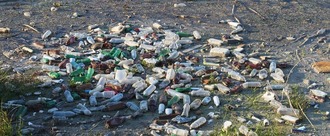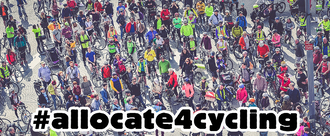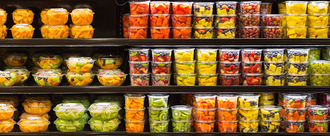- Featured
- Animal Rights
- Anti-racism
- Arts & Culture
- Children
- Climate
- Corporate accountability
- Crime
- Disability rights
- Economic
- Education
- Environment
- Food and Sustainable Production
- Gender Equality
- Governance and Transparency
- Health
- Housing
- LGBT Rights
- Mental health
- Northern Ireland
- Planning
- Privacy and Data Protection
- Rural Inequality
- Social Justice
- Trade
- Transport and Infrastructure
- Workers' Rights
- More
-
Petition to persuade Bernie Sanders to give public speech in Dublin on June 4th/5thBernie is giving a speech on June 4th which sold out after 1 minute. There are thousands of people who are willing to pay to hear him speak, to hear a voice for the people. Someone who stands up for the environment, all people and the planet as a whole. My hope is that hearing Bernie speak could spark the revolution that is needed in Ireland so we can transform our country and go back to the values it was founded on.221 of 300 SignaturesCreated by Cormac Nugent
-
Tax Diesel Soot PollutersDiesel Cars emit soot and NOx toxic fumes and are polluting our clean air and are bad for peoples' health. 70% of new cars purchased in Ireland are diesel - insane - due to the crazy Motor Tax Law that penalises older pre-2008 petrol cars but promotes purchase of new diesel cars. Paris to ban diesel cars from July 2017 ... many other cities to follow. Irish Motor Tax Law is regressive, 2-Tier and bad for your health. This Irish law puts high tax on pre-2008 cars and low tax on those who can afford new cars. It is socially divisive and totally unacceptable.9 of 100 SignaturesCreated by R Neuville
-
Leave Rural Post Offices AloneThe CEO of An Post has said he will close over 250 post offices in sparsely populated areas, this year. This is totally unacceptable, it cannot be justified that because an area is sparsely populated, a post office is not necessary. It is more important than ever,as rural post offices are an essential part of the community, providing many services other than just to post letters. Among these are pensions, banking, phone top-up, paying bills, to name but a few. This is totally unacceptable. I live in Carrigaholt on the Loop Head Peninsula where our main industry is tourism. It is an area of approximately 1200 sq km, and unfortunately we fit the criteria. Our post office is already the only remaining one out of an original 5. People are already travelling over 15km to use it's services, and to expect them to journey even further is disgusting. I understand that An Post has to make money, but closing post offices and putting up postage is not the way. Install broadband in the post office, even more services can be accessed, more people will use the post office. If the paperwork is made redundant by the post office being "on-line" that alone will generate enough income to run the rural business. Carrigaholt Post Office is the heart of our village. It offers local and tourist information as well as the expected services, it is a meeting place where many go to socialise, it is so much more than is expected by An Post, but not by a rural community. The only time some people go out is to collect the pension and those that have to rely on others to get them there will be unable to collect it, or carry out other transactions if the nearest post office is even further away. It is no good telling us we can have our pensions paid into the bank as we have no permanent bank to do so, this also means travelling. Local businesses use the post office every day for things like coinage and fliers. They would be affected greatly by it's closure. To take away our post office would be to take the heart from our community. It would kill it! Whenever a business has to make "financial cuts", it's always the rural areas that are looked at first, not larger urban ones. This is because financially, country areas have very little to offer large corporate organisations. It matters nothing to these people that we are left with very little, or that to use the post office will involve over an hour's time to do the minimum business. What we do have though is our pride and affection for our local post office, and so now is the time to let the country know that we won't accept the closures!!589 of 600 SignaturesCreated by Carole Head
-
Don't Bottle ItBottled water is an invented consumer need.Thirty years ago the Irish public laughed at the idea of being sold a product that you could get from the tap for next to no cost. Today we feel as though bottled water is just a normal, or even essential, item to be included in our shopping baskets. In 2016, Irish consumers spent around €76.5 million on bottled water. We are sending about 800 million plastic bottles to be processed every year and are spending about €38 million annually on disposing of plastic bottles alone. This money could be used for investment in public drinking fountains, or for improving our public water infrastructure. By choosing to not consume bottled water, you will not only reduce the environmental impacts of plastics, but you will also eliminate a senseless daily expense. Plastic bottles pollute our oceans. About 80 percent of plastics found in our oceans come from land-based sources. In 2016, the United Nations World Oceans Assessment reported that as plastics entre the oceans they breakdown into microplastics. Plastics ingested by animals, such as fish, seabirds and marine mammals, can harm the intestines, and results in infection or death. Plastics also leach an assortment of dangerous chemicals into the water, and also act as a carrier for invasive species which can contaminate remote areas of the globe. The production and distribution of bottled water is a waste of resources. Research carried out by the Pacific Institute on the "energy implications of bottled water" in the United States worked out that bottled water is estimated to cost 2,000 times more than tap water to produce. The bottled water industry in the United States required an energy input equivalent to 54 million barrels of oil and roughly three times this amount is required to satisfy global bottled water demand. This adds around 2.5 million tons of carbon dioxide to our atmosphere every year. The high energy cost of bottling water is not the only way in which this industry is needlessly wasteful. One litre of bottled water takes three litres of water to be produced. Fresh safe drinking water is a valuable, and over exploited resource that every living organism on this planet depends upon. It is not an overstatement to argue that the continued use of single-use plastic water bottles should be considered nonsensical, wasteful and extraordinarily expensive. By eliminating bottled water from your shopping bag you are helping us move towards meeting four Sustainable Development Goals. Often the United Nations Sustainable Development Goals are thought of as only being relevant for protecting the most vulnerable ecosystems, and supporting the most disempowered communities, on our planet. People often forget that to achieve the Sustainable Development Goals by 2030, social, economic and environmental problems that are endemic within western consumer-lead countries must be considered as integral to the project. Our seemingly inconsequential habits have direct effects on the health of the planet, and the livelihoods of some of the world's most vulnerable communities in the world. We need to become aware of the consequences of our actions, but we also need to be responsive, and take brave steps towards a truly sustainable future. Let's reduce our use of plastic bottles in Ireland, and all place pressure on the Irish government to stop selling, or providing, bottled water in public institutions. Don't Bottle It! Be Brave we can make this change.225 of 300 SignaturesCreated by Rhiannon Thompson

-
Tell Minister Naughten we want a climate plan we can be proud ofWe finally have the government’s long overdue draft plan for how it will reduce climate pollution. We need this plan to be transformational. It’s far from it. But it can be. We have a lot to be proud of in terms of how people power is moving Ireland onto a more progressive path towards climate action. Ireland now has national Climate Legislation and we may become the first state to divest from fossil fuels and join the growing list of progressive nations to ban fracking. Hugely positive steps forward. But we are taking many steps backwards with the publication of the government’s draft plan for how they will cut our climate pollution by 80% by 2050. A transformational plan is what we need. It’s far from it unfortunately! The impacts of climate change today are already being felt today in Ireland, and across the world. Tell Minister Naughten to build on the really positive momentum we have created and give us a plan to reduce climate pollution that we can be proud of.1,886 of 2,000 SignaturesCreated by Kate Ruddock
-
Don't Evict Ferrycarrig FamiliesURGENT: A family are to be evicted from their home on Ferrycarrig halting site tomorrow Monday the 20th of March if we don't convince Wexford County Council to withdraw their complaint from An Gardaí. The family have small children and the council have failed to provide suitable alternative accommodation. But, if enough of us sign the petition and send it to Wexford County Council before tomorrow - we could make them change their mind and withdraw their complaint.1,133 of 2,000 SignaturesCreated by Wexford Housing Action

-
ACT NOW to stop water charges once and for all!On Tuesday or Wednesday of next week, the Joint Committee on Water will vote on whether they recommend water charges for “excessive use.” This will be a Trojan Horse for bringing in full water charges at a later date. So far 10 members of the 20 person water committee have committed to scrapping water charges and ending the domestic metering process. If one more member abstains or votes to scrap the charges, the Dail will be instructed to end metering and end water charges for good. We’re asking people to contact two members of the Committee who may support our position. Senator Grace O’Sullivan of the Civic Engagement Group and Deputy Noel Grealish, Independent TD for Galway West. We must convince these members to vote to scrap water charges: 1. If metered charges continue, eventually allowances will be reduced and full water charges will be introduced in time – meaning Ireland would have water poverty for the first time in our history. 2. Irish people are not wasteful with their water. In fact, we use less water than almost any other country in the EU consuming 25% less water than countries like the UK where they’ve had metered charges for almost 30 years. 3. There is a real problem with leaks in the system but only 3% of leaks come from the household side of the infrastructure. Funding should be directed to the public side where 97% of water is being leaked and also to district metering which could identify leaks. 4. A metering process for ‘excessive use’ makes no economic sense. Firstly, the ‘expert commission’ on water said there is no identifiable excessive use and using their formula for charging for excessive use would mean spending up to €300 million on a metering programme for a return of €27 million. This is a waste of valuable taxpayers money and would divert money from upgrading the real infrastructural problems. 5. The real agenda behind water charges is privatization. Should the metering process continue, there is no doubt that our water would be privatized in the future. 6. Article 1.9 of the CETA international trade agreement could provide for the privatization of our water in the future and having meters in place would facilitate this. 7. Two thirds of the Irish public voted for politicians who declared opposition to water charges. This is backed up by the Irish Times MRBI poll which shows that 64% of the population want the charges scrapped while only 34% want them continued. It is time to do the democratic will of the Irish electorate. For these reasons and more water charges must be abolished. We need you to contact Senator Grace O’Sullivan and Deputy Noel Grealish and demand they abstain or vote to end water charges for good. Noel Grealish TD - [email protected] Senator Grace O’Sullivan - [email protected] As Senator Grace O’Sullivan is representing the Civic Engagement Group on the Water Committee, it is important that we tell the other members of the Committee to support our call. The full Civic Engagement Group includes: Alice Mary Higgins – [email protected] Collette Kelleher – [email protected] Frances Black – [email protected] Lynn Ruane – [email protected] John Dolan – [email protected] Please sign this petition and share with everyone you know. We only have days to protect our human right to water and prevent future water poverty.4,221 of 5,000 SignaturesCreated by Right2Water Ireland Water is a human right
-
Allocate 10% of the National Transport Budget to CyclingCycling offers a wide range of benefits to our society including reducing carbon emissions, relieving congestion, improving health and making our towns safer, more pleasant places to live and move about. Unfortunately, the resources allocated to cycling at present are nowhere near sufficient to make it a safe and normal activity for people of all ages and abilities. Therefore, we are calling on Minister Ross to: 1.) Allocate at least 10% of the Transport Budget to cycling. 2.) Implement the National Cycle Policy Framework in full. 3.) Take action to reduce transport emissions so that Ireland fulfils its obligations under the Paris Agreement on Climate Change.679 of 800 SignaturesCreated by Cyclist .ie

-
Tell Supermarkets to create plastic-free aisle in every storeAround 300 million tons of plastic are produced globally each year, yet just 12 per cent is recyclable [1]. There are natural biodegradable alternatives to plastics available today so their ever increasing use can no longer be justified. The Feb. 2016 'New Plastics Economy: Rethinking the future of plastics' report analysis indicates (i) that 95% of the value of plastic packaging material, worth $80-120 billion annually, is lost to the economy, and (ii) that, on the current track, there could be more plastics than fish in the ocean (by weight) by 2050. The most important voice of reason that a supermarket can hear is that of the customer. By signing this petition you are helping to get the message across to key decision makers in the grocery sector that you no longer want to be part of the planetary plastic problem. That you want alternatives so this massive problem can finally start to be addressed, so future generations have a cleaner world to live in free from the dangers that a plastic filled ocean represents. There is a large demand for plastic free options so retailers should benefit if facilitating this for customers. Retailers who take a lead on this should see increased brand value, positive word of mouth and greater customer loyalty. The need for innovation in this area will spur job creation and new inventions that will be good for the economy too. It is clear to see now that proper disposal of plastic is a burden on all parties involved, particularly for the natural environment that is already starting to break under the burden. The situation with plastics has gotten way out of hand and it is up to all parties involved to act now. [1] http://www.telegraph.co.uk/science/2017/02/10/supermarkets-urged-create-plastic-free-aisle-every-store/4,245 of 5,000 SignaturesCreated by Dylan Regan

-
Buy the former Energy Gym for the people of Johnstown in NavanThe Johnstown estate is the biggest estate in Navan with nearly 3000 houses and 10,000 people and still growing. In actual fact it is bigger than most of the small towns like Kells and Dunshaughlin surrounding it. But bigger is not always better when it comes to facilities. Johnstown is the forgotten estate when it comes to facilities in Co Meath for its young and ever growing population. Most of the smaller towns and other estates in Navan around us have much better facilities, with a state of the art Community Centre's in the likes of Dunshaughlin. For the Council to build a Community Centre from scratch in Johnstown, it would firstly take far to long for its long suffering population but would also cost to much. It makes much better financial sense for the Council to purchase the former Energy Gym for the benefit of everyone living in the community. This is only a once in a lifetime chance to turn a near derelict building and an eye sore based in the centre of the community into a badly needed Community Centre which all the residents of Johnstown can be proud of. We would ask that all Meath County Councillors from all parties and none would support this petition and urge the Council to act urgently to secure the Centre for the benefit of their constituents.1,192 of 2,000 SignaturesCreated by Alan Lawes
-
Michael D for the White HouseEnda will not stand up to Trump. He will embarrass the nation. Michael D Higgins on the other hand will eloquently represent us and honor our human values.7 of 100 SignaturesCreated by Paudie Quirke
-
Dont let Irish Airports be used to enforce Trumps banWe are not racist, dont let Trump make us look like we are.26 of 100 SignaturesCreated by Martin Malone












